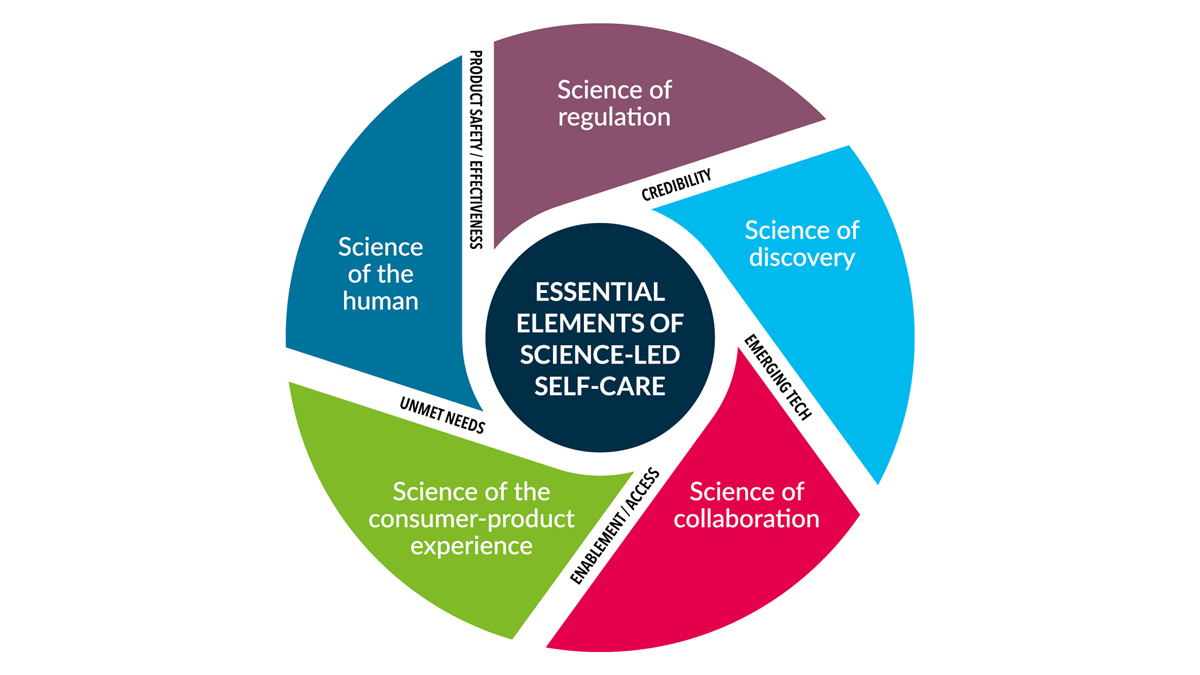Bayer sets out a proposed basis for science-based self-care products

The healthcare sector has a “moral imperative” to help people navigate the self-care industry, says pharma giant.
Recent years have seen an explosion in the “self-care” industry, a sector that was worth an estimated $4.9 billion in 2019. But in a world of fake news and influencer-led trends, it’s the healthcare sector’s responsibility to ensure people have the knowledge they need to sort the wheat from the chaff.
That’s exactly what Bayer’s new paper, Science-Led Self-Care: Principles for Best Practice, sets out to achieve. Abbie Lennox, global chief regulatory, medical, safety and compliance officer for the organisation’s consumer health division, said she hoped it will “spark a conversation” around the need to promote science-led self-care.
“We believe that companies like Bayer consumer health have a responsibility to provide trustworthy, evidence-based solutions to the consumer’s non-prescription healthcare needs, using our deep understanding of biology and consumer needs to deliver innovative products – and keeping on top of changing needs and paradigms.
“Critically, self-care is about empowering the consumer to manage and protect their own health, supported by science-led solutions,” said the report.
Me time vs. self-care
According to the World Health Organization, self-care is the “the ability of individuals, families, and communities to promote health, prevent disease, maintain health, and cope with illness and disability with or without the support of a health worker”.
As Bayer’s report highlights, a web search for the term will garner more than 3.5 billion hits, with the majority focused on “me time”, stress reduction, and healthy eating.
“Although self-care has become synonymous with the health and wellness industry, many products […] are not based in evidence or grounded in deep science,” said the report.
“Science-led self-care companies have been swept along with bubble baths and yoga, rather than emphasizing that self-care exists in a broad health care continuum.”
Providing consumers with the knowledge and expertise to distinguish between the two, it went on, is a “moral imperative” that falls upon the entire healthcare ecosystem, from healthcare professionals and healthcare systems to policy makers, advocacy groups, and pharma.
“There’s nothing wrong with bubble baths – taking time for yourself is important. However, there is an important distinction to be made between data-driven, active self-care, where the consumer is taking active steps to improve and maintain their health using tools supported by rigorous science, and the more passive approach of ‘me-time’.
“The value of science-led innovation needs to be recognised – and in today’s world of misinformation and rumour, rigorous testing and regulation has never been more important. Consumers need products they know they can trust.”

The five principles
Lennox said that the five principles set out in the report could become a “blueprint for deeper discussion” of how best to help consumers navigate the confusing landscape.
“We owe it to the consumer to help them navigate the self-care landscape and identify the products and services that are grounded in science and will help them to prevent disease and live healthy lives,” she said.
The first principle, labelled the “Science of the Human”, asserts that self-care products should be rooted in a thorough understanding of human biology and medical insights, while the second, the “Science of Regulation”, calls for independent regulation. This would ensure safety and efficacy through transparent communication, accurate labelling, and supported claims, says the report.
The “Science of Collaboration” highlights the need for “carefully judged collaborations” which would help to improve access to self-care, thereby making products widely available, and empowering more consumers to take charge of their health. The “Science of Discovery” suggests self-care products be rigorously researched and founded on scientific principles, and the “Science of the Consumer-Product Experience” recommends providing a seamless experience that helps consumers better use self-care products.
Underpinning all five principles are the themes of building credibility, protecting safety and efficacy, addressing unmet needs, and enabling access.
David Evendon-Challis, chief scientific officer with Bayer’s consumer health division, said: “We believe these principles will enable better self-care as we look to push the boundaries of how science and innovation can continue the amazing journey of people living better, healthier lives.
“We think they can also benefit others who are committed to this vision, as greater consumer confidence will help boost the reputation of the self-care industry as a whole.”
For many companies engaging in self-care, the principles will already be part of their routine processes. “They are what set science-led self-care products apart,” he said.
Starting blocks for change
As the self-care industry continues to evolve, it will throw up new changes, disruptors, and – ultimately – questions that demand answers. Doing so will take a system-wide approach.
“This is only the beginning of the conversation: we are keen to enlist the help of experts across the field of self-care to find these answers,” said the paper, explaining that a series of workshops with key stakeholders are in the offing.
Rather than providing a hard and fast set of rules for the future of science-based self-care products, the report hopes to start the conversation, added Evendon-Challis.
“We look forward to kicking off a robust discussion with industry peers, health and medical professionals, policy makers, and consumers about how these can continue to evolve to contribute to better health for all,” he said.
Click here to read the report. Feedback can be emailed to feedbackSOSH@bayer.com
Feature image credit: Bayer AG













